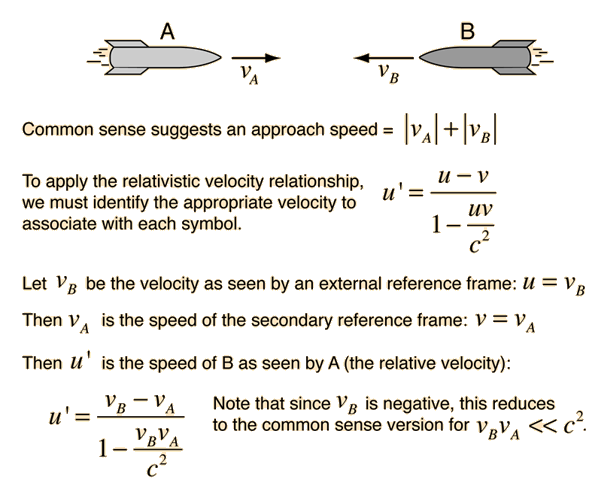Einstein Velocity Addition
The Einstein velocity relationship transforms a measured velocity as seen in one inertial frame of reference (u) to the velocity as measured in a frame moving at velocity v with respect to it (u'). In problems involving more than two objects, the main difficulty is the assignment of velocity to all the objects.

If A sees B moving at velocity v, then a velocity measured by B (u') would be seen by A as:

These relationships make perfect sense at low speeds where both denominators approach 1.
| HyperPhysics***** Relativity | R Nave |


